 I warmly welcome Aruna Nambiar on my blog. Aruna is a Bangalore-based editor and writer. Her debut novel Mango Cheeks, Metal Teeth is a coming-of-age story and social satire set in small-town Kerala of the 1980s. She is working on her second novel. When did you first realize you wanted to be a writer? I’ve always enjoyed writing – I was the editor of my school magazine, I somewhat self-consciously took part in writing competitions, I was a compulsive keeper of secret diaries which I’m now convinced my mother read covertly with the hope of uncovering teenage larks, I wrote on Bombay suburban trains sandwiched between gossiping girls, vendors of embroidered handkerchiefs and warbling mendicants on my commute to and from college. For as long as I remember, the dream was to write a novel although I wasn’t quite sure what it was going to be about. In the meanwhile I studied engineering and management and worked as a banker, but was soon writing again. But even after years of writing and editing, even after completing my first novel, I hesitated to call myself a writer – surely something that gave you so much pleasure couldn’t be qualified as a job? Surely writers were dissolute bohemian types who smoked too much and never bathed and spouted poetry at the drop of a hat? Surely it was a flash in the pan, that first novel? It is only now, after spending three years writing my second novel, that I really feel like a writer. What was the hardest part of writing Mango Cheeks, Metal Teeth? Working up the courage to write it. Writing a novel is a giant leap of faith for a first-time novelist, as you spend months and years toiling over your work, never quite sure if anyone will want to read it, let alone publish it. It requires so much more long-term commitment than anything you’ve done before, a short story, for instance. And no matter how much time you spend etching out the plot and developing the characters, you are rarely sure if you have all the pieces of the puzzle in hand as you actually embark on the writing – you just have to believe that you will find them along the way, that you will be able to sort out the glitches in the plot, fill out the characters, polish the jaded bits of writing as you go along. What did you enjoy most about writing this book? Capturing the sights and sounds and joys of spending a summer vacation in an ancestral home in the 1980s – an experience many of us had at the time. The high-ceilinged houses and expansive gardens, the well in the backyard and the Indian-style bathrooms, the boisterous games and petty squabbles with large contingents of cousins, the foibles of the domestic help, the quirks of the elders. It was also fun to invent these completely eccentric characters and test the boundaries of humour – for Mango Cheeks, Metal Teeth might be a comic coming-of-age novel, but it is also a social satire; there are serious themes couched in a humorous story. I wanted the novel to be entertaining and funny, and the underlying philosophical bits to sneak up on the unsuspecting reader. So I was constantly experimenting with how much I could stretch the humour without it spilling over into spoof, or how much I could restrain the gags to let the deeper themes shine through without breaking the flow of the humorous story. It was a very enjoyable journey. What inspires you? Excellence, and the effort it takes to achieve it, and originality. I think these are the cornerstones of any memorable creative work. A beautifully written line. Crackling dialogue. Memorable characters. An inventive plot. Authors – and film-makers and singers and artistes – who dare to follow their heart instead of following the herd. All these inspire me. What are some day jobs that you have held, and how have they impacted your writing? After studying engineering and management, I started my career as a banker – a demanding job which left me little time or inclination to write. Those initial years did, however, give me an experience of the scientific and corporate world, and exposure to many different kinds of people I would have otherwise not met, some of which reflects in my second novel. In the early part of my writing career, I wrote short stories, travelogues and other non-fiction which appeared in magazines and newspapers and a couple of anthologies; I also wrote the text for a book on Kerala. I suppose the idea for my first novel was simmering away on the backburner of my subconscious during that period. At the same time, I also worked as an editor, which has had the greatest impact on me as a writer. It has given me an intuitive feel for structure, an eye for detail, and the ability to be detached from my own work – detached enough to brutally edit it when required. But it occasionally makes me over-critical about my writing, and my editor sometimes has to prise the final work out of my agonizing, rectifying hands before it can see the light of day. Do you write more by logic or intuition, or some combination of the two? Summarize your writing process. Well, ‘process’ makes it sound very ordered! I suppose there’s some method to the madness. Typically, a novel starts with a seed of an idea which starts germinating in your mind. Then, if I may mix my metaphors, you start putting the nuts and bolts in place – the basic plot, chapter outlines, characters, setting, timelines – here, logic probably rules over intuition. But once you start writing, intuition takes over. Every choice you make as you write – the way you choose to structure your sentences, the turn of phrase you use, the nuances of plot and characters that you fine-tune as you go along – can only be done intuitively, I feel. What projects are you working on at present? I’m in the final stages of my second novel which is a tragicomic family saga. Starting in 1991 at the cusp of liberalisation, it follows the lives of a family over a quarter century. It is a funny yet touching portrait of ageing, love, loss and ever-changing family dynamics, set against the backdrop of a fast-changing Indian society. P.S. I will be posting new interviews every Monday, except for Holidays. Please do leave comments. I would love to hear from you and so would Aruna. Thank you and have a lovely week. 😃 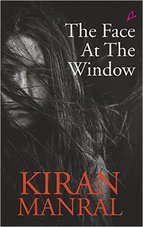 Hello Readers, Its time you meet the ‘creator’ and the ‘creative’. Being an author for nearly a decade has helped me realize how vast the publishing industry is. Through my blog, ‘Thoughts and Plots’, I invite you to meet various professionals belonging to this milieu. Writers, Agents, Editors, Publishers, Graphic Designers, Publicists, Promoters! Peek into their minds and learn something new or simply enjoy being a part of my world... As the first guest on my blog, I heartily and happily welcome the very gracious and successful author, Kiran Manral. Kiran is the author of six books, the most recent being The Face At The Window. She is also on the planning board of the Kumaon Literary Festival, chair of the Women Unlimited Series, Taj Colloquium and mentor at Sheroes, Qween and Back 2 the Front. Over to Kiran… When did you first realize you wanted to be a writer? I think I was and will always be a reader. The writing happened incidentally. As to realising I wanted to be a writer, I never did think I would ever write a book. It took two dear friends constantly hounding me to get me to write and send in my first book. I published my first book the year I turned forty. Getting published, you could say, is my mid life crisis. What would you say is your interesting writing quirk? I must take every single thing off my hands when I write, watch, bangles, Buddha beads, rings. I feel weighed down if I don't. What was the hardest part of writing this book? The getting into the character. A 78 year old Anglo Indian retired school teacher has been the furthest from myself I've ever written. To imagine and research her and then slip into her skin was a challenge. What inspires you? Stories. The fact that every single person has a story and the story on the surface is radically different from the story about themselves they carry within themselves. What are some day jobs that you have held? Have they affected your writing? My day jobs have been in advertising, journalism, research. And from them I've learnt to write to deadline, to be dispassionately critical about ones work, to look for the unstated in what is stated. For instance in journalism, I learnt how to extract that one kernel of information around which the entire story would hinge. This works when one is working on plot. How do you find or make time to write? I believe if you want to do something you will make time for it. Everything else is just an excuse. What are some ways in which you promote your work and why is promotion important? I do try to promote my work on social media and by doing the occasional reading but this is part and parcel of the writing experience according to me, reaching out to as many people as one can because after all if you aren't going to be the fiercest advocate of your work who will? Please share something about your future plans and projects. I've never planned anything about my writing which is also why you would see I've written across multiple genres, from humour to chick lit to romance to parenting and finally now to horror. Let's see where I go next! You can interact with Kiran Twitter: @kiranmanral and Facebook: https://m.facebook.com/KiranManralAuthorPage/?ref=bookmarks Links to her books: http://www.amazon.in/s/ref=la_B00DWXCEJ2_B00DWXCEJ2_sr?rh=i%3Abooks&field-author=Kiran+Manral&sort=relevance&ie=UTF8&qid=1443775811 P.S. I will be posting new interviews every Monday, except for Holidays. Please do leave your comment. I would love to hear from you and so would Kiran. Thank you and have a lovely week. 😃 |
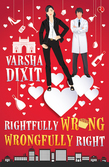

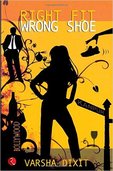
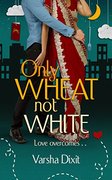
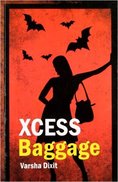
 RSS Feed
RSS Feed
